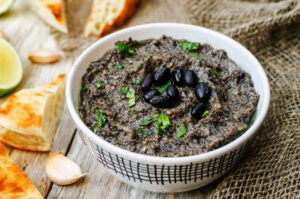Breaking Free From Diet Culture
Our world obsesses over the “ideal” body shape, size, and weight, but it is essential to shed light on the negative implications of dieting and diet culture. Diet culture permeates all aspects of society, promoting restrictive eating habits, unrealistic body standards, and detrimental effects on our collective mental health.
Let’s explore what diet culture is, how it affects mental and physical health, examples of its prevalence, and offer strategies to resist its harmful influence while promoting genuine health and wellness.
What is Diet Culture?
Diet culture is a set of beliefs, practices, and values that prioritize thinness and equate it with ideal health and moral virtue. It encourages people to adopt restrictive food habits, focus solely on weight loss, and pursue a specific body composition as the ultimate goal.
Diet culture believes you should always work on changing your body, often at the expense of your mental well-being and sometimes your physical health. It should be noted that diet culture is not limited to specific diets or weight loss programs–it is a pervasive societal mindset influencing our daily lives.
How Does Diet Culture Affect Mental Health?
There are many examples of diet culture negatively affecting mental health, especially in young people1. Here are a few ways reaching for perfection with diet, exercise, and body standards can harm mental health.
Negative Body Image
Diet culture perpetuates unrealistic beauty standards, making many dissatisfied with their bodies. Constant comparison to these standards can result in low self-esteem and poor body image2.
Guilt and Shame
Diets often involve strict rules, which, when inevitably broken, lead to guilt and shame. This toxic cycle can negatively impact self-worth and overall mental health.
Food Anxiety
Diet culture labels foods as “good” or “bad,” fostering an unhealthy relationship with food. This can lead to anxiety and obsession over what, when, and how much to eat. A 2010 study3 showed that people restricting their calorie intake experienced higher levels of cortisol, a stress hormone, and monitoring calorie intake increased their perceived stress levels–overall highlighting how dieting may harm both psychological well-being and biological functions.
Social Isolation
Diet culture can isolate individuals from social gatherings and experiences, as they may avoid events with certain foods or feel uncomfortable around food-centric situations.
Examples of Diet Culture
It can be difficult to see examples of diet culture in our daily lives because the thoughts and feelings behind it have been so prevalent for many years. It’s the norm we’ve lived under most of our lives. Here are some examples to help you understand how this harmful philosophy has shaped us.
Fad Diets
The constant influx of new diet trends, promising quick fixes and dramatic weight loss, is a clear example of diet culture. These diets often lack scientific backing and can be harmful.
Detox Teas and Supplements
The promotion of detox teas and supplements as a means to cleanse the body is a common aspect of diet culture. Such products often lack evidence of effectiveness and can have adverse health effects.
Social Media Influencers
Some influencers promote unrealistic beauty standards, often attributing their appearance to the diet, exercise, and wellness products they hope to sell, creating an unattainable ideal that fuels diet culture.
How to Resist Diet Culture
Now that we know what diet culture is and can recognize some of its aspects, how do we resist its harmful tenets and retrain our thoughts toward a healthier mindset?
Practice Body Positivity
Celebrate your body for what it can do rather than how it looks. Follow body-positive accounts on social media and surround yourself with positive influences.
Reject Diet Talk
Challenge conversations that revolve around dieting, weight loss, or body criticism. Redirect the discussion toward more meaningful topics.
Intuitive Eating
Some experts believe intuitive eating is a more healthful way to approach our relationship with food. Listen to your body’s cues and eat when you’re hungry. Focus on nourishing your body with balanced, satisfying meals.
Seek Support
If you’re struggling with body image or disordered eating, contact a mental health professional or support group for guidance and assistance.
How to Promote Health Without Diet Culture
It is difficult to know how to promote health and wellness in our lives and families when we only know how to change our “unhealthy” habits within the confines of diet culture. Here are a few mindset shifts you can incorporate into your life today.
Emphasize Holistic Wellness
Shift the focus from appearance to overall well-being, encompassing mental, emotional, and physical health.
Set Realistic Goals
Instead of aiming for a specific weight or size, set achievable health goals, such as increasing physical activity or eating more fruits and vegetables. At Fresh Tri, we work toward accomplishing long-term goals with the Iterative Mindset Method™ (IMM). With IMM, you set goals, “tri” an approach to reaching them, assess your behaviors, and tweak and adjust your way to lasting habit changes.
Mindful Eating
Cultivate a healthy relationship with food by practicing mindful eating. Savor each bite, pay attention to your body’s hunger and fullness signals, and notice how your chosen food makes you feel through the whole process – while cooking, eating, and after your meal.
Celebrate Diversity
Recognize that bodies come in all shapes and sizes, and there is no one-size-fits-all approach to health. Embrace diversity and promote inclusivity.
The Iterative Mindset Method™ – An Antidote for Diet Culture
Diet culture’s harmful effects on mental health are undeniable. Recognizing and resisting its influence is vital in promoting a healthier and more compassionate approach to well-being. The IMM is backed by neuroscience and can get you out of the diet culture cycle and into a healthier lifestyle.
By rejecting unrealistic diet and exercise standards, embracing body positivity, and focusing on holistic health, we can break free from the shackles of diet culture and pave the way for a happier and genuinely healthier future.
Download the Fresh Tri app today to learn more about the Iterative Mindset Method™.
References
- Dieting in adolescence. Paediatrics & Child Health, 9(7), 487-491. (2004) https://doi.org/10.1093/pch/9.7.487
- Tomiyama, A. J., Mann, T., Vinas, D., Hunger, J. M., DeJager, J., & Taylor, S. E. (2010). Low Calorie Dieting Increases Cortisol. Psychosomatic Medicine, 72(4), 357. https://doi.org/10.1097/PSY.0b013e3181d9523c
- Tomiyama, A. J., Mann, T., Vinas, D., Hunger, J. M., Dejager, J., & Taylor, S. E. (2010). Low calorie dieting increases cortisol. Psychosomatic medicine, 72(4), 357–364. https://doi.org/10.1097/PSY.0b013e3181d9523c













